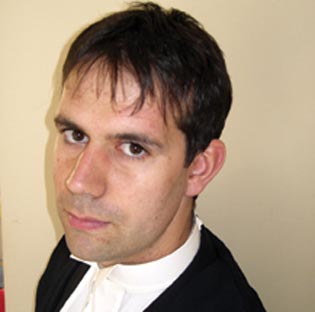 IN April last year I set up my own legal practice. I did this because I wanted to spend more time with my wife and young son, have greater control over my career and run my own business. Surprisingly, it has proved possible to achieve all three goals at the same time.
IN April last year I set up my own legal practice. I did this because I wanted to spend more time with my wife and young son, have greater control over my career and run my own business. Surprisingly, it has proved possible to achieve all three goals at the same time.
I spend nearly every working day in magistrates’ courts, the Crown Court and at police station cells. I represent individuals from the point of their arrest, through the police investigation and into what is euphemistically named the ‘criminal justice system’.
I have spent over a decade studying and practising law. My experience suggests that criminal litigation may be far less about justice and more an argument between parties over who has the more tenacious lawyer. For example, I have seen many domestic violence prosecutions collapse when the complainant failed to attend court to give evidence.
Distortions of justice by clever legal argument are not new. Shakespeare’s infamous quotation: ‘The first thing we do, let’s kill all the lawyers’ (Henry VI Part Two) suggests that mine has never been a popular profession.
The Bible has many references to justice. Micah 6:8 records the clear instruction: ‘Act justly… love mercy and… walk humbly with your God’ (New International Version). It is surprising therefore that Scripture contains scant reference to lawyers as we understand them today - as opposed to the experts of the Levitical law. The only lawyer mentioned in the Bible is an individual named Zenus (Titus 3:13). The Apocrypha records a superb example of criminal defence cross-examination that resulted in the acquittal of the defendant together with the subsequent execution of the two prosecution witnesses who had committed perjury. The story of Daniel and Susanna, makes clear that in this particular instance justice did prevail, but what occurs when the guilty are acquitted or the innocent convicted?
I am sometimes asked how my conscience permits me to act for an individual whom I suspect is guilty of the offence for which they are being prosecuted. I believe a lawyer’s duty is to act in the best interests of their client, provided that these are not in conflict with their overriding duty as an officer of the court. This means that I will not knowingly permit any client to mislead the court. It is, thankfully, not my remit to either believe or to disbelieve the instructions that my client gives to me. It is my responsibility to advise my client of the law, the strength of the evidence against them and to present my client’s defence in the most convincing way to the court. So, if an individual admitted to me that they were guilty, I could not allow them to give evidence to the contrary. In such an eventuality, I would explain to them that their options were either to instruct another lawyer, or that I could still challenge the strength of the prosecution evidence for them but I could not allow them to present their own case before the court.
Therefore, as a Christian I do not find that there is a conflict between my faith and my profession despite seeing many individuals acquitted whom I personally considered to be guilty.
There is no one type of criminal litigation client. Many, but not all, come from deprived backgrounds and already have lengthy criminal records. The type of offences for which my clients stand accused include murder, driving offences, assaults, public order matters, drug-related offences, thefts, sex offences, conspiracies and offences involving children. Many offences involve drugs and/or alcohol as contributing factors. As a Salvationist, I see at first hand the benefits of The Salvation Army’s prohibition against addictive substances for those of us within the ranks.
I also particularly appreciate Scripture’s assurance that we are not under law but under grace. Christ’s death at Calvary ensures that, provided we continue to accept him as Saviour, we shall not be treated as justice would demand. The purity of God demands justice, but the sacrificial death of Jesus means that our sins have been paid for and we shall go to Glory.
Working in the criminal law provides me with a particular angle on Jesus’ teaching to love God with all one’s heart and to love one’s neighbour as oneself. Whenever a person is convicted their lawyer has an opportunity to address the court before sentence is passed. This is an opportunity to explain why an offence was committed and something of a defendant’s background. Offences are always committed because a defendant has not loved his neighbour as himself - I have yet to come across an exception to this rule.
As a solicitor, my work provides me with opportunities to meet the legal needs of a large number of people from a wide range of backgrounds. It is interesting that the picture at the beginning of In Darkest England And The Way Out (reprinted in Salvationist 17 February) displays a lawyer meeting the needs of the poor within society. William Booth foresaw the need for the Legal Services Commission long before its inception!
by Bandsman Graham Wallis, Gloucester
Reprinted with permission from Salvationist UK March 17, 2007